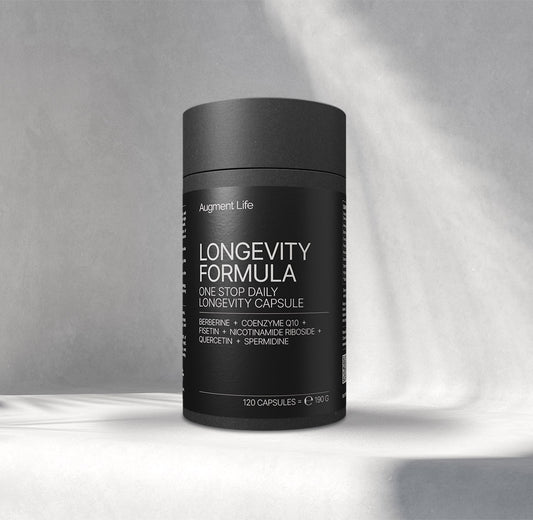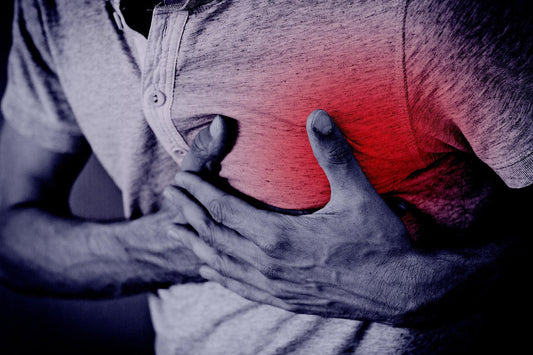La nostra dieta può influire notevolmente sull'efficacia degli integratori che assumiamo, aumentandone o diminuendone assorbimento e biodisponibilità. La domanda è: come possiamo utilizzare queste conoscenze per evitare di compromettere l'assorbimento degli integratori e ottenerne il massimo beneficio?
In breve, è meglio assumere gli integratori liposolubili con pasti contenenti grassi e quelli idrosolubili con acqua a stomaco vuoto. Evita di prendere integratori con pasti ad alto contenuto di fibre. Assumi insieme composti sinergici e scopri qual è la forma migliore disponibile dell'integratore che desideri assumere.
Continua a leggere l'articolo per saperne di più su dieta e integratori in dettaglio!
Cos'è la biodisponibilità?
La biodisponibilità degli integratori si riferisce alla quantità di integratore che viene effettivamente assorbita nel flusso sanguigno dopo l'assunzione. Non è raro che solo il 50% (o meno) del tuo integratore venga assorbito quando lo prendi (1). Per questo motivo, vogliamo darti alcuni consigli su come aumentare la biodisponibilità degli integratori, soprattutto per quanto riguarda la tua dieta.
Probabilmente hai già sentito istruzioni su come assumere i medicinali in relazione al cibo, ed è di solito molto importante se li prendi prima, durante o dopo il pasto. Lo stesso vale per gli integratori, poiché in sostanza li assumi come un'aggiunta al tuo modello dietetico già esistente.
Ricorda sempre che la tua dieta dovrebbe essere adeguatamente bilanciata per rappresentare la tua principale fonte di nutrienti, vitamine e minerali. Gli integratori alimentari, come dice il loro nome, dovrebbero sempre venire oltre la dieta.

Fattori che influenzano la biodisponibilità
Oltre al cibo, alcuni fattori importanti influenzano la biodisponibilità degli integratori, rendendola una questione piuttosto complessa (2). Essi sono:
- Formulazione - Alcune formulazioni di integratori, come liquidi, polveri e preparati liposomiali, vengono assorbite più facilmente rispetto a pillole, capsule o compresse.
- Solubilità - Gli integratori liposolubili (vitamine A, D, E, K, resveratrolo, coenzima Q10) dovrebbero essere assunti con pasti ricchi di grassi, mentre gli integratori idrosolubili (vitamine del complesso B e C) possono essere presi con acqua e generalmente hanno una maggiore biodisponibilità.
- Assorbimento nel tratto digestivo - Il pH dello stomaco influisce su quanto bene certi nutrienti vengono assorbiti. Ad esempio, un ambiente altamente acido è necessario per l'assorbimento di minerali come calcio e ferro.
- Salute del fegato e del sistema digestivo - Condizioni come il morbo di Crohn o la sindrome dell'intestino irritabile possono influire sulla capacità del tratto digestivo di assorbire nutrienti e integratori. Il fegato è necessario per il corretto metabolismo di farmaci e integratori, e problemi o malattie epatiche possono ridurre significativamente l'assorbimento.
- Età - L'assorbimento di integratori e nutrienti può diminuire con l'avanzare dell'età. Inoltre, uomini e donne potrebbero assorbire certi integratori in modo diverso, come ferro, calcio e magnesio.
Leggi di più sull'importanza e il significato della biodisponibilità nel nostro articolo: "Biodisponibilità degli Integratori – Significato e Importanza".
Come il cibo influenza la biodisponibilità degli integratori?
La storia di come la nostra dieta influisce sulla biodisponibilità degli integratori è un po' più complessa del semplice "prendi le vitamine liposolubili con alimenti grassi".
Oggi sappiamo certamente molto più di una volta, ma molta ricerca scientifica dovrà essere ancora condotta in futuro per comprendere tutte le piccole sfumature della relazione tra il nostro sistema digestivo, i cibi che mangiamo e gli integratori che assumiamo.
Tuttavia, la risposta a questa domanda può essere riassunta in alcuni punti:
1. Le fibre rallentano l'assorbimento degli integratori
Le fibre alimentari, in particolare le fibre solubili, possono legarsi ai minerali (come calcio, ferro e magnesio) e formare complessi che non vengono facilmente assorbiti dall'intestino.
Le fibre possono anche rallentare l'assorbimento di altri nutrienti, inclusi grassi e carboidrati, riducendo così l'assorbimento delle vitamine liposolubili e di altri integratori (3).
2. Il microbiota intestinale a volte aiuta, a volte no
Il microbiota intestinale è il nome comunemente usato per tutti i microrganismi che vivono nel nostro intestino e ci aiutano a metabolizzare i cibi e produrre alcune vitamine. Questi minuscoli organismi possono migliorare significativamente l'assorbimento di alcuni integratori. Tuttavia, a volte possono anche intaccare e ridurre l'assorbimento degli integratori (4).
Ad esempio, i polifenoli di frutta, tè e bacche sono metabolizzati dal microbiota intestinale. A seconda dei batteri e dei lieviti presenti nell'intestino, la biodisponibilità di questi polifenoli può aumentare o diminuire.
In condizioni come la crescita batterica eccessiva nell'intestino tenue (SIBO), i batteri possono consumare la vitamina B12, riducendo la sua disponibilità per l'assorbimento da parte dell'organismo ospite. Questo può portare a carenze nonostante un'integrazione adeguata. In tali casi, anche l'assorbimento del ferro potrebbe diminuire, poiché i batteri tendono a prenderlo per sé.
Leggi di più sul microbiota intestinale e sulla sua connessione con la longevità nel nostro articolo: "Integratori Probiotici e la loro Connessione con la Longevità".
3. Un maggiore flusso sanguigno nel sistema digestivo aiuta
Quando mangiamo e i nostri stomaci sono pieni, lo svuotamento dello stomaco richiederà del tempo. Questo può davvero ridurre l'assorbimento di alcuni integratori rapidamente solubili che dovresti assumere a stomaco vuoto con acqua (5). D'altra parte, ciò potrebbe favorire le formulazioni a rilascio prolungato, come avviene anche per alcuni farmaci.
Quando mangiamo, però, il flusso sanguigno al sistema digestivo aumenta. Una maggiore quantità di sangue favorisce l'assorbimento di nutrienti e, naturalmente, degli integratori. Molecole complesse presenti negli integratori, soprattutto probiotici e vitamine liposolubili, beneficeranno del fatto che tu consumi un pasto prima di assumerle.
4. Sinergia e competizione tra cibo e integratori
Alcuni integratori vengono assorbiti meglio se assunti con determinati alimenti. Ne parleremo a seguire.
Tuttavia, certi alimenti e integratori possono essere in competizione tra loro. Ad esempio, se assumi molto magnesio e calcio contemporaneamente, essi competeranno per gli stessi siti di legame e l'assorbimento di entrambi sarà basso. Inoltre, la vitamina C aumenta l'assorbimento del ferro, ma il calcio lo riduce.

Consigli per migliorare l'assorbimento degli integratori
Considerando ciò che sappiamo finora, ecco alcuni suggerimenti su come puoi ottimizzare la biodisponibilità e l'assorbimento degli integratori che assumi. Dopo tutto, tutti noi vogliamo che i nostri integratori vengano assorbiti e facciano il loro dovere. Nessuno vuole sprecare un prodotto di qualità scelto con cura.
1. Valuta le diverse forme di integratori
Una delle cose più evidenti sugli integratori è che essi si presentano in tante forme diverse. Di solito, le proteine del siero sono sempre in polvere o liquido, e le vitamine sono in pillole o capsule.
Naturalmente, puoi spesso trovare lo stesso integratore in più di una forma. Quindi, la domanda è: qual è la migliore forma di integratore per la biodisponibilità? Anche qui la risposta non è così semplice.
Tuttavia, ecco alcune delle migliori forme di integratore per aumentare la biodisponibilità (6):
- Minerali chelati o preparati liposomiali possono essere più biodisponibili rispetto alle forme standard perché assomigliano maggiormente al cibo reale rispetto alle preparazioni chimiche pure.
- Integratori liquidi o in polvere offrono un assorbimento più rapido rispetto a pillole o capsule, specialmente per le persone con problemi digestivi.
2. Pianifica i pasti
In questo caso, scegliere il momento giusto significa assumere correttamente il tuo integratore in base a quando mangi. Alcuni integratori si assorbono meglio se presi lontano dai pasti, mentre altri beneficiano di essere assunti durante.
Ecco cosa possiamo dedurre fino ad ora dalle ricerche scientifiche in merito a in quale momento è meglio assumere gli integratori:
- Assumi le vitamine liposolubili durante i pasti - prendi le vitamine A, D, E, e K, il resveratrolo e il coenzima Q10 con un pasto ricco di grassi. Poiché sono vitamine e integratori liposolubili, saranno assorbiti molto meglio se accompagnati da grassi (2).
- Non assumere integratori con pasti ricchi di fibre - evita di assumere integratori se hai appena mangiato o stai per mangiare un pasto ricco di fibre (con molte verdure o legumi). Invece, assumi il tuo integratore tra un pasto e l’altro, almeno 2-3 ore prima o dopo un pasto ricco di fibre (3).
3. Assumi integratori con alimenti sinergici
Alcuni integratori saranno assorbiti molto meglio se assunti insieme a determinati alimenti. Tali alimenti vengono definiti "sinergici" proprio per questo motivo. Ne esistono molti esempi comprovati (7), come:
- Ferro e vitamina C,
- Curcumina/curcuma e pepe,
- Vitamina K e vitamina D,
- Vitamina B9 e vitamina B12,
- Acidi grassi Omega-3 e alimenti ricchi di antiossidanti come bacche, noci e semi,
- Zinco e alimenti ricchi di proteine come carne, fagioli e noci,
- Calcio e vitamina D,
- Magnesio e alimenti prebiotici come aglio, cipolle, banane, avena e cereali integrali,
- TMG (betaina) e nicotinamide mononucleotide (NMN).
Conclusione
Abbiamo esplorato un lungo e complesso elenco di modi in cui il cibo che mangi può influenzare l'efficacia degli integratori che assumi. Ma ciò che possiamo sottolineare è che, seguendo le istruzioni sull'etichetta, puoi già migliorare significativamente l'assorbimento dei tuoi integratori.
Assumi gli integratori liposolubili con grassi durante i pasti e quelli idrosolubili con acqua a stomaco vuoto. Assumi i composti sinergici insieme e verifica se il tuo integratore è disponibile in forma liposomiale o liquida, poiché queste sono le forme migliori.
Riferimenti:
- Schümann K, Classen HG, Hages M, Prinz-Langenohl R, Pietrzik K, Biesalski HK. Bioavailability of oral vitamins, minerals, and trace elements in perspective. Arzneimittelforschung. 1997 Apr;47(4):369-80. PMID: 9150856.
- Ofoedu CE, Iwouno JO, Ofoedu EO, Ogueke CC, Igwe VS, Agunwah IM, Ofoedum AF, Chacha JS, Muobike OP, Agunbiade AO, Njoku NE, Nwakaudu AA, Odimegwu NE, Ndukauba OE, Ogbonna CU, Naibaho J, Korus M, Okpala COR. Revisiting food-sourced vitamins for consumer diet and health needs: a perspective review, from vitamin classification, metabolic functions, absorption, utilization, to balancing nutritional requirements. PeerJ. 2021 Sep 1;9:e11940. doi: 10.7717/peerj.11940.
- Ioniță-Mîndrican CB, Ziani K, Mititelu M, Oprea E, Neacșu SM, Moroșan E, Dumitrescu DE, Roșca AC, Drăgănescu D, Negrei C. Therapeutic Benefits and Dietary Restrictions of Fiber Intake: A State of the Art Review. Nutrients. 2022 Jun 26;14(13):2641. doi: 10.3390/nu14132641.
- Barone M, D'Amico F, Brigidi P, Turroni S. Gut microbiome-micronutrient interaction: The key to controlling the bioavailability of minerals and vitamins? Biofactors. 2022 Mar;48(2):307-314. doi: 10.1002/biof.1835.
- Said HM. Intestinal absorption of water-soluble vitamins in health and disease. Biochem J. 2011 Aug 1;437(3):357-72. doi: 10.1042/BJ20110326.
- Vu KT, Kim JE, Cho IH, Park NH, Kim JK, Chun YS, Koo YT, Lee SH, Paik DH, Shim SM. A pilot study on the effect of formulation and individual muscle mass on vitamin C absorption in randomized clinical study. J Food Sci. 2022 Jun;87(6):2757-2765. doi: 10.1111/1750-3841.16169.
- Townsend JR, Kirby TO, Sapp PA, Gonzalez AM, Marshall TM, Esposito R. Nutrient synergy: definition, evidence, and future directions. Front Nutr. 2023 Oct 12;10:1279925. doi: 10.3389/fnut.2023.1279925.











